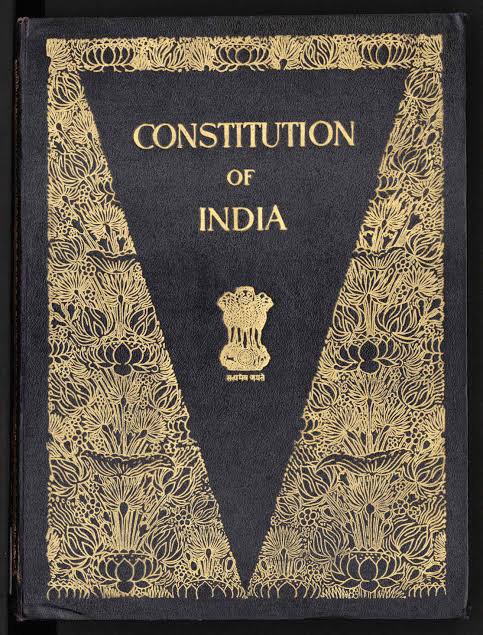Who has the power to change the Indian Constitution? The Constitution of India is the most important law in the country. It is often called one of the most complete and detailed legal papers in the world. It was signed into law on January 26, 1950, and it is the most important part of Indian democracy. But it can change over time, just like any other living text. In this piece, we look at the interesting process of making changes to the Constitution of India. We also look at who has the power to start and approve these important changes.
Who Has The Power To Amend The Constitution Of India
Table of Contents
The Preamble – The Building Blocks
The hopes and goals of the country are written in the Preamble to the Constitution of India. It starts with the words “We, the people of India,” which show that the citizens have the most power. This line sets up the basic idea of sovereignty and makes it clear that the people are the ones who give the Constitution its power.
What Parliament Does
Article 368: The Power to Make Changes
The Parliament is the main body that can make changes to India’s Constitution. Article 368 of the Constitution makes it clear how the Constitution can be changed. It gives Parliament the power to make changes by passing a bill with a certain number of votes.
Exceptional Number
To change the Constitution, you need a special majority, which is a majority of each house of Parliament (the Lok Sabha and the Rajya Sabha) and a majority of the people who are present and voting (two-thirds).
The Plan of Action
Parliament has the power to change the Constitution, but it can be pushed to do so by many different groups.
By people who are in Parliament
Both the House of Commons and the House of Lords can suggest changes. They can put forward bills to change the Constitution, which must then be passed according to Article 368.
By the Head of State
The President of India can also start the process by asking Parliament to change certain parts of the constitution.
By the legislatures of the states
The state governments are another way to make changes to the Constitution. If a suggested amendment has to do with the states, it must be approved by the legislatures of at least half of the Indian states.
The Report
After a bill to change something is passed by Parliament, it goes to the President to be signed into law. The President is very important to the process because a change can’t become law without his or her approval. But the President’s job is mostly for show, and they have to follow what the Council of Ministers says.
What the courts do
Review by the courts
The Indian judiciary, especially the Supreme Court, plays a big part in making sure that changes to the Constitution don’t change its basic structure. In the well-known Kesavananda Bharati case, the Supreme Court said that Parliament can change parts of the Constitution, but it can’t change the basic structure.
The Bottom Line
In the end, the power to change the Indian Constitution mostly lies with Parliament, which gets its power from the people. But this power is not absolute, because the judiciary watches out for the basic framework of the Constitution. The President’s job is important, but most of it is just for show. The Constitution of India is a living document, and the way it can be changed shows how the country’s needs and ideals change over time.
FAQs
Can a simple majority in Parliament change the Indian Constitution?
No, you need a special majority, which is a majority of all the members of each house and a majority of two-thirds of the members who are present and voting.
What does the Kesavananda Bharati case have to do with making changes to the Constitution?
This case proved that Parliament can change the Constitution, but it can’t change how it is put together.
Are state governments a part of the process of making changes?
Yes, if a suggested amendment has to do with the states, it must be approved by the legislatures of at least half of the Indian states.
Can the President of India turn down a change that Parliament has made?
The President’s role in making changes to the Constitution is mostly symbolic. They have to do what the Council of Ministers tells them to do and can’t turn down changes made by Parliament.
What does the Preamble of the Indian Constitution say about the ability to change the Constitution?
The Preamble starts with the words “We, the people of India.” This shows that the citizens have the most power, and it is their chosen representatives in Parliament who can change the Constitution.

I’m a student. I like writing about famous people. I will cover biography of all the latest and trending people world wide. Stay tuned with me on Biographyly.com. Don’t forget to share our contents with your friends.


![Ibomma Telugu Movies 2023 [New Updates for You!] Ibomma Telugu Movies 2023](https://biographyly.com/wp-content/uploads/2023/05/Ibomma-Telugu-Movies-150x150.jpg)

